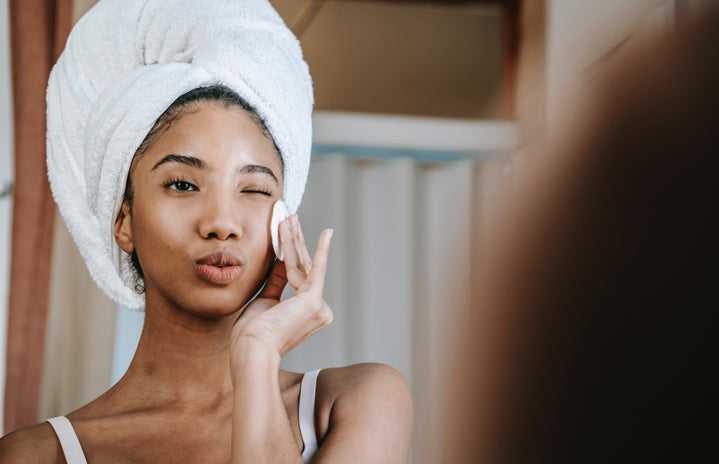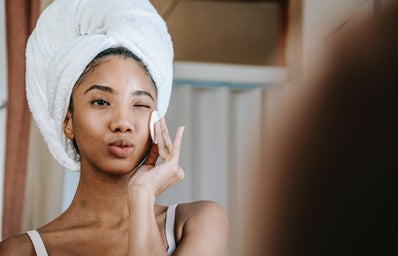With great power and status comes great responsibility, something lost on many ‘wellness’ brands lately. Although this is somewhat inevitable, this has become an alarming trend in recent years. Not only is the industry rife with the exploitation of workers but it has also been twisted (at times) to profit off people’s insecurities within the toxic culture surrounding beauty and fitness. Both the vulnerable worker and the vulnerable consumer can fall victim to these brands, with their voices often minimalised as a result of the brands’ immense reputations.
The prime example, which you might already be aware of, is Glossier. A brand that launched with only four products in 2014, Glossier is a great encapsulation of the ‘minimalist’ aesthetic that was born during the 2010s and remains relevant to this day. A pushback against the heavier makeup trends of this time (think: Anastasia Beverly Hills Dipbrow Pomade, and the ‘King Kylie’ era), Glossier’s transition towards simple ‘no-makeup makeup’ seemed like a no-brainer. However, the rise and fall of Glossier set an unfortunate precedent that the wellness industry is still trying to shake off.
On August 14th, 2020, an Instagram account @outtathegloss posted ‘An Open Letter to Glossier From Former Retail Employees’. It detailed how Glossier was ‘ill-equipped’ to manage a ‘diverse’ team, in addition to criticising the ‘dead-end resource’ that was their HR department. Glossier had (relatively) recently opened a store in London, and this account made it very evident that they were simply not adequately prepared to do so. They made their issues clear and concise, even offering individual incidents that the employees had experienced. Though social media ‘call-outs’ were nothing new, this account and its purpose sent ripples throughout the wellness and beauty communities. It became obvious that a brand hailed for its cleansing, fresh image was not as pure as they made themselves seem. Between this and Glossier’s rather high-end price range, the wellness and ‘clean’ beauty industry started facing scrutiny like never before.
From here, we can see an accumulation of individual incidents and controversies across a range of brands, which have ultimately led to a tarnishing of the wellness industry’s reputation as a whole. Scandals surrounding inclusivity have been the most common – such as Tarte Cosmetics having a severe lack of shade range for anyone besides white people. Other controversies include Johnson & Johnson being mass sued for asbestos in their talcum powder, and multiple feuds between beauty YouTubers (“Bye Sister!”). Often these scandals became sensationalised in both the mainstream media and on socials, which only further cast a negative light upon this industry. The masses were increasingly, uncomfortably aware of these incidents, which cast an extremely negative light on the community as a whole.
There are also, unfortunately, instances of celebrities profiting off the vulnerability of the consumer. Brands such as GOOP by Gwyneth Paltrow rely heavily on the status of the founding individual, with a huge pre-existing following being mistaken for scientific evidence and credibility. For example, GOOP was fined $145,000 for ‘unsubstantiated’ marketing claims surrounding jade eggs intended for the vagina (the less said about this the better…). This is a perfect example of people’s blind faith in celebrities, and how this is taken advantage of for their own financial gain.
So, we can see that there is no individual culprit at fault here, nor a particular brand. Rather, a relatively new industry (referring to the ‘wellness’ aspect, not beauty as a whole) has risen rapidly, only for rotten components to come to light faster than they could ever be covered up. It’s a shame, in many ways, that this industry will perhaps never be able to entirely shake this image; but this serves to teach us a powerful cautionary lesson surrounding sensationalism, and the importance of inclusion and kindness across all walks of life.


